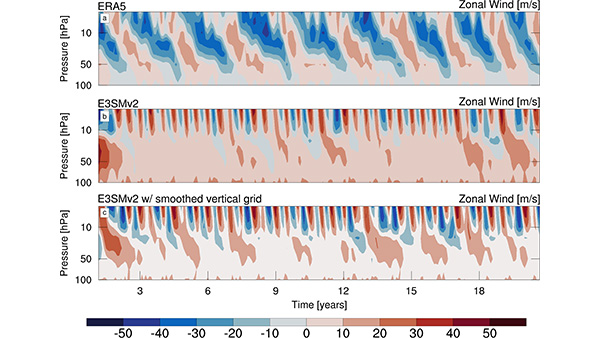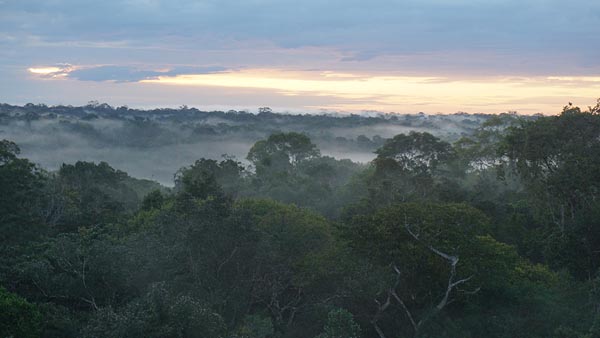Regional Ecosystems
Regional climate depends on the long-term temperature, precipitation, and wind patterns experienced over a specific region. In tropical ecosystems, tropical climates are characterized by predictable temperature patterns with low to moderate seasonal variation in temperature each year. For global climate models, tropical clouds and rainfall are critical components of the Earth's climate system and necessary to accurately simulate global and regional ecosystems. In urban ecosystems, urban climates are characterized by the conditions over large metropolitan areas and are notably different from the surrounding rural climates. Although urban areas are major contributors to climate change, they are also more susceptible to the effects of these changes, compared to rural areas. In costal ecosystems, like urban climates, coastal climates are notably different than those of nearby inland climates and are highly susceptible to climate changes. Coastal ecosystems are especially sensitive to sea level rise and sea surface temperature changes, changes to the intensity and frequency of storms, and increasing concentrations of carbon dioxide (CO2). Scientists are working to understand the role of carbon and climate system feedbacks on tropical, urban, and coastal environments in the 21st century.
 ESGF2: Earth System Grid Federation 2
ESGF2: Earth System Grid Federation 2
 Improving the Quasi-Biennial Oscillation (QBO) through Surrogate - Accelerated Parameter Optimization and Vertical Grid Modification
Improving the Quasi-Biennial Oscillation (QBO) through Surrogate - Accelerated Parameter Optimization and Vertical Grid Modification
 NGEE Tropics: Next Generation Ecosystem Experiment - Tropics
NGEE Tropics: Next Generation Ecosystem Experiment - Tropics
 RUBISCO: Reducing Uncertainties in Biogeochemical Interactions through Synthesis and Computation
RUBISCO: Reducing Uncertainties in Biogeochemical Interactions through Synthesis and Computation


